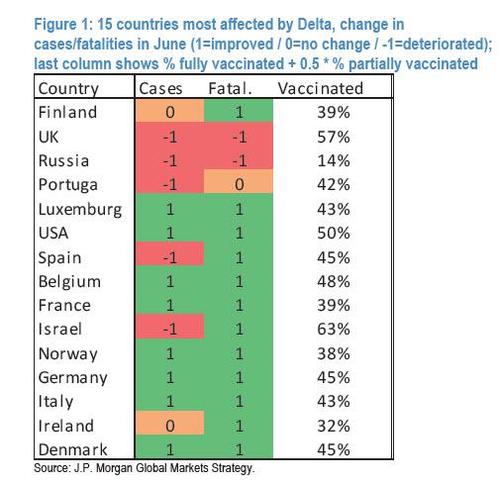
The Supreme Court won’t take up New Hampshire’s lawsuit against Massachusetts over teleworker taxes. Massachusetts has a policy of taxing out-of-state teleworkers working for Bay State companies.
The Court justifiably deemed the lawsuit out of its jurisdiction. But the decision to pass on the case frustrates many who were hoping to get nationwide clarity on how states can tax the income of out-of-state workers, particularly teleworkers.
Income tax for those living in one state and working in another has always been a tangled mess, with rules and differing from state to state. The confusion has been compounded during the pandemic, with the rise of teleworkers who live and work out of state.
States have the ability to tax income that was earned by working in the state and income that was earned by residents of the state. This means that if someone works in New York and lives in Vermont, then New York can tax it because it was earned by working in New York, and Vermont can tax it because it was earned by a resident of Vermont. Fortunately, like most states, Vermont offers a refund of the amount one pays in New York income tax, so the income would not be taxed twice.
But these refund schemes vary from state to state, creating a complicated web that can make filing as an out-of-state worker a headache.
For remote workers, the confusion only grows. Take the case of a person who lives in New Hampshire but, under typical circumstances, commutes to work in Massachusetts. As of 2017, more than 103,000 people—that’s more than 15 percent of all New Hampshire workers—were in this position.
During the pandemic, many of these people were forced to work from home. This would seem to mean that because they earned the income while working at home in New Hampshire and are residents of New Hampshire, that income could only be taxed in New Hampshire. And since New Hampshire has no income tax, that means they would owe nothing on that money.
This is where the controversial Massachusetts rule comes in. Effective March 10, 2020, Massachusetts instituted a temporary rule that gave the state the power to tax the income of remote workers who typically work in Massachusetts. For those in income tax-free states like New Hampshire, that means being subject to income taxes that people who work non-remote jobs in the state don’t have to pay.
The rule states: “All compensation received for services performed by a non-resident who, immediately prior to the Massachusetts COVID-19 state of emergency was an employee engaged in performing such services in Massachusetts, and who is performing services from a location outside Massachusetts due to a Pandemic-Related Circumstance will continue to be treated as Massachusetts source income subject to personal income tax.”
New Hampshire officials sued Massachusetts over this policy, considering it an affront to their sovereignty to decide how workers in their state are taxed.
“In the middle of a global pandemic, Massachusetts has taken deliberate aim at the New Hampshire Advantage by purporting to impose Massachusetts income tax on New Hampshire residents for income earned while working within New Hampshire,” reads New Hampshire’s complaint. “Upending decades of consistent practice, Massachusetts now taxes income earned entirely outside its borders. Through its unprecedented action, Massachusetts has unilaterally imposed an income tax within New Hampshire that New Hampshire, in its sovereign discretion, has deliberately chosen not to impose.”
In its brief, the Supreme Court said that it passed on the case because—as established by the precedent set by Mississippi v. Louisiana and other similar cases in order to protect the rights of states—the court will not take state-on-state suits “unless the threatened invasion of rights is of serious magnitude and established by clear and convincing evidence.”
Legal scholars note that, in general terms, this means the court will not take on state-on-state suits unless there is a clear reason why this suit is being brought by a state and not by a private citizen affected by the issue.
“New Hampshire does not invoke the types of interests that would warrant such an exercise,” reads the Supreme Court brief, “and the issues New Hampshire seeks to present can adequately be raised and litigated by New Hampshire residents who are subject to the Massachusetts income tax.”
While this may be the right decision, the Court passing on the case leaves open the question of whether states have the ability to tax out-of-state remote workers. The Massachusetts rule, although temporary, could set a precedent that remote workers in another state have strong enough economic ties and impact to the state where their company is located to merit being taxed out of state.
This could cause further problems, especially for those who live and work remotely in states that do have an income tax, unlike New Hampshire. As of now, state rules regarding refunds for those who work out of state do not usually include remote workers. This means that if teleworkers were taxed in the state where their company is, they could be taxed twice on the same income.
In our increasingly remote-work world, people now have the opportunity to choose where they want to live, and, independently from that, where they want to work. This gives them the opportunity to live in lower-tax states like New Hampshire and work for companies based in urban centers in states like Massachusetts, New York, and California.
Remote employees of Massachusetts companies living in New Hampshire aren’t using the roads in Massachusetts or creating trash that Massachusetts must dispose of. Their employers are already paying corporate taxes in Massachusetts. Out-of-state employees are not consuming in-state public goods, and should not be required to pay for them.
from Latest – Reason.com https://ift.tt/3y7dYEM
via IFTTT






